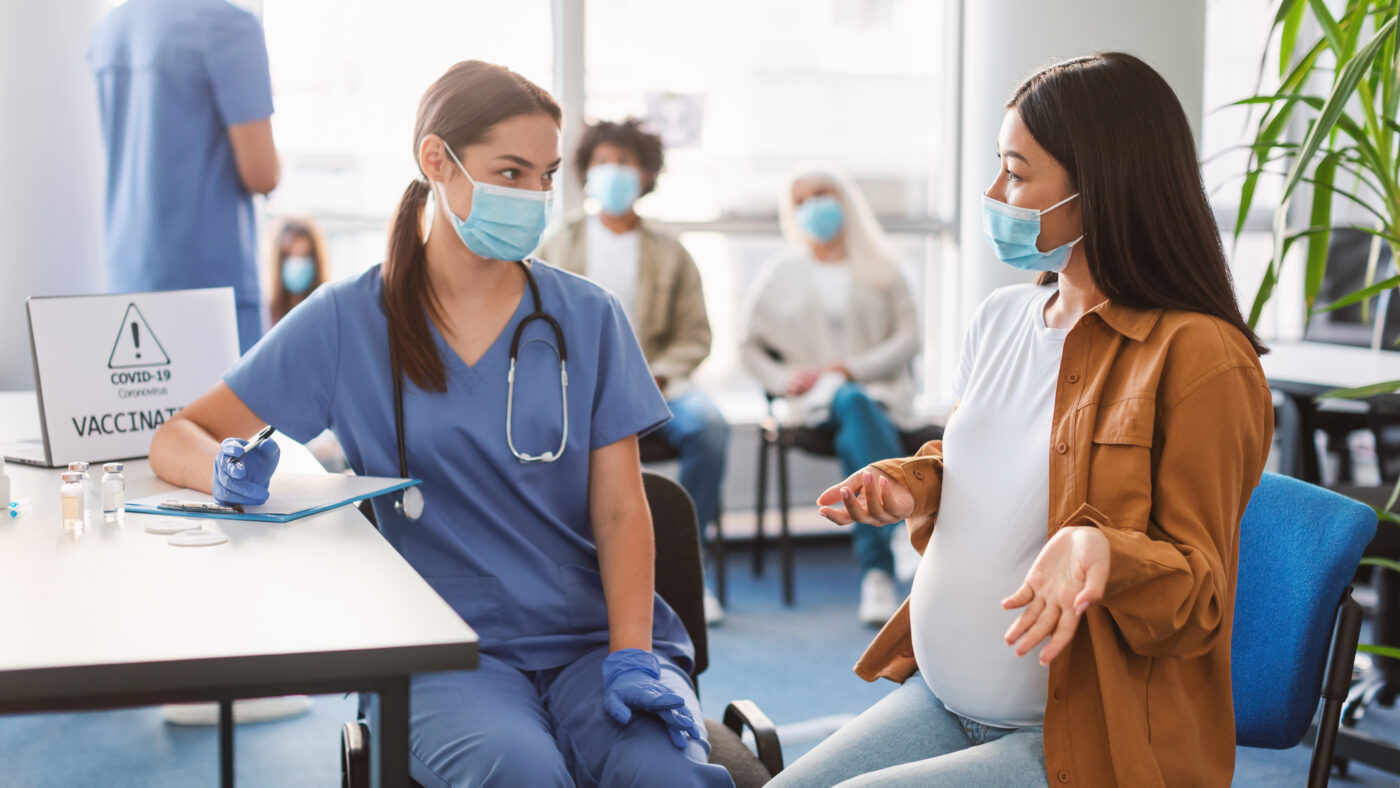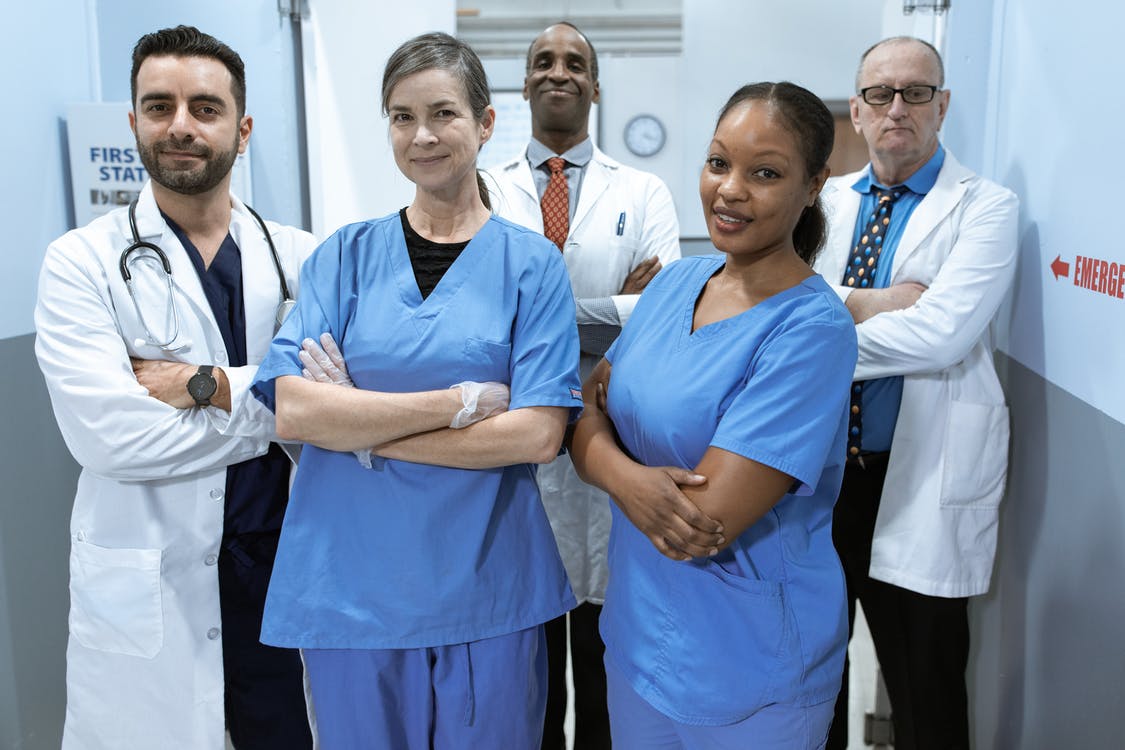A Neonatal Resuscitation Program (NRP) provides healthcare practitioners with vital skills, tools, and resources necessary to help save a newborn’s life when an emergency arises. This program offers significant value since it empowers healthcare providers to take immediate and effective action during a neonatal emergency situation. In addition, it offers essential knowledge about the overall neonatal health to improve hands-on skills for healthcare personnel.
Ultimately, a healthcare professional with adequate NRP training and skills can offer the best possible care to newborns and improve their chances of survival in a life-threatening situation. Due to the seriousness of emergency cases in labor and delivery rooms, the program is rigorous and requires re-assessment every two years.
1. The Training Supports Healthcare Professionals in Different Specialties
Newborns are highly vulnerable, which is why neonatal and resuscitation programs strive to offer a rigorous training curriculum to diverse groups of health care professionals who are likely to save an infant’s life in case of an emergency in the delivery room. While it’s easy to think that NRP programs are reserved for registered nurses in a hospital’s neonatal unit, the truth is that it is designed for different professionals. For instance, all doctors and nurses caring for newborns, respiratory therapists, and midwives should acquire and perfect these life-saving skills.
NRP imparts various concepts and skills necessary for neonatal resuscitation and continues to offer invaluable information. Any healthcare professional who is part of the team working in a delivery room and subsequent care of infants should be NRP certified. Most importantly, any medical student interested in newborn infants’ treatment should acquire NRP Newcastle training as early as possible. This equips the students with the necessary skills and understanding of what it takes to save a newborn’s life in an emergency situation.
2. It’s a Basic Requirement for Numerous Professionals in Healthcare
Adequate NRP training may be recommended or optional for some professionals. However, it is also a mandatory requirement for specific healthcare professionals. Considering the critical implications involved in this field, NRP certification is often a hard requirement for any personnel involved in the delivery room. This includes all types of nurses, physicians, and lactation consultants in every health care organization.
In addition, auxiliary emergency care personnel, including emergency medical technicians and paramedics, may occasionally face this requirement in their career since they are likely to encounter an ailing newborn in an emergency scene.
Strict adherence to the neonatal resuscitation program guidelines can make the difference between an infant’s life or death. That’s why the neonatal resuscitation procedure should be administered with utmost diligence. However, with the in-depth NRP training, healthcare personnel can acquire the necessary skills to deal with most neonatal cases at any time and place.
3. NRP is the Highest Standard Newborns Emergency Care
It can be daunting to comprehend the crises and risks that often affect infant patients. Regardless, at least 10% of all newborns facing immediate respiratory distress upon birth require urgent care, which is critical to their lives. As such, doctors, ancillary staff, and nurses must be confident and ready for immediate action, especially when dealing with a high-risk delivery.
NRP is built upon empirical research and consistent practice to derive its standard protocol. The certification ensures that all healthcare personnel understand the protocol and prepares them to deploy neonatal care immediately.
Expert-level neonatal care specialists typically conduct all neonatal resuscitation training with many years of direct hands-on experience in their specific fields. All the guides and resources deployed during the NRP training process must emphasize the use of advanced modern equipment when administering the skill test to complement the conceptual training.
In addition, it is critical for instructors to ensure all participating professionals feel confident and competent enough upon completing the program. This is because the core objective of the program is to impart hands-on skills that prepare the medical personnel for real-life neonatal emergencies. Adequate and rigorous NRP training prepares healthcare professionals to handle any neonatal emergencies and offer effective treatment to infants in emergency situations.
4. The Classes Cover Different Subjects
The classes in NRP programs take students and professionals through numerous medical care models to equip them with the prerequisite knowledge and skills required to safely and effectively resuscitate an infant. This may include providing oxygen, warming a newborn, starting IVs, and suctioning airways.
Moreover, the training covers several subjects, including initial assessment of infants and accurate identification and proper use of neonatal resuscitation equipment. Due to the sensitivity of neonatal cases, subjects like Neonatal cardiopulmonary resuscitation and positive pressure ventilation are crucial in an emergency situation.
Most importantly, the program includes advanced medical dosing and administration as well as the integration of neonatal skills, also called the neonatal mega code. The mega code concludes the training by combining and connecting all the skills to make you more competent.
The subjects are carefully selected to ensure medical professionals get all the first aid knowledge and skills necessary for performing successful neonatal procedures consistently.
5. Finding a Suitable NRP Class is Crucial
The process through which any healthcare personnel accumulates and hones their neonatal resuscitation skill set is crucial. It is essential to have the appropriate learning environment to ensure you clearly understand how to respond, treat, and support a newborn during a neonatal emergency.
The ideal NRP program is taught through a hybrid learning format, which is vital for most healthcare professionals since it provides the ideal combination of online instruction and a hands-on session. The NRP program is approved by the American Heart Association (AHA) and the American Academy of Pediatrics (AAP). It’s designed to ensure participating professionals will acquire the full spectrum of knowledge and skills required to manage and treat any neonatal medical event effectively.
In addition, the NRP’s blended model of learning ensures that healthcare professionals go through a low-stress and convenient learning environment. As such, this program allows healthcare personnel to capitalize on their learning experience and assimilate the intended skill set for day-to-day application.
6. The Standard NRP Training Process
The program is a two-part course that caters to new students as well as healthcare professionals with current and expired NRP certifications. It comprises a pre-study, online learning assessment and exam, and an instructor-led real-life event.
During the pre-study, participants are required to purchase The Textbook of Neonatal Resuscitation (8th edition) as soon as they register for the NRP course. Most students currently working in labor and delivery, neonatology, or NICU, are already quite familiar with the NRP Guidelines and do not need to spend much time in the self-study phase. However, suppose the material is relatively new or completely unfamiliar to you. In that case, the New 8th edition Textbook of Neonatal Resuscitation is the best resource to help you prepare for the online assessment and the classroom part of the course.
After completing the pre-study, students can start Part 1 of the program, which consists of Online Learning Assessment and Examination. The first part of the NRP training program comprises an NRP learning assessment and an online exam, followed by the course survey. Unlike in the past, the current program longer has eSim cases.
Before attending Part 2 of the course, it’s mandatory for all students to successfully complete all three portions of Part 1. You can purchase the NRP Part 1 during your course registration, and the material is often known as the “8th Edition NRP Online Exam”. After acquiring the exam, you will receive detailed instructions on how to set up your NRP account via email within 72 hours. The instructions include details on how to successfully access the online exam.
The second and final part of the NRP training consists of an Instructor-Led Event. This part of the course is a mandatory classroom portion that includes a demonstration, comprehensive hands-on practice, NRP skills evaluation, simulation, and the final debriefing. During your classroom session, an instructor will demonstrate the protocols and skills and be available for additional coaching or clarifications before your test begins. It’s important to understand that you must successfully pass every portion of the NRP Online Exam before you can participate in the classroom portion of the training. Ideally, your instructor expects you to demonstrate the standard neonatal resuscitation skill set before participating in team resuscitation and debriefing. The subsequent completion and passing of the online learning exam and successful skills demonstration mean that you will receive your American Academy of Pediatrics NRP certification card, valid for 24 months.
Endnote
The neonatal resuscitation program is a comprehensive educational course that offers standard concepts and skills necessary for neonatal resuscitation. While the successful completion of the NRP training may not demonstrate competence and experience in performing consistent neonatal resuscitation, it’s a basic necessity for healthcare practitioners dealing with newborn infants.
The Newcastle Training program is administered through a hybrid model that includes online learning and assessment combined with hands-on classroom training that ends in a demonstration of skills acquired. Various institutions offer the NRP program, but choosing an approved class is vital to ensure valid certification.



